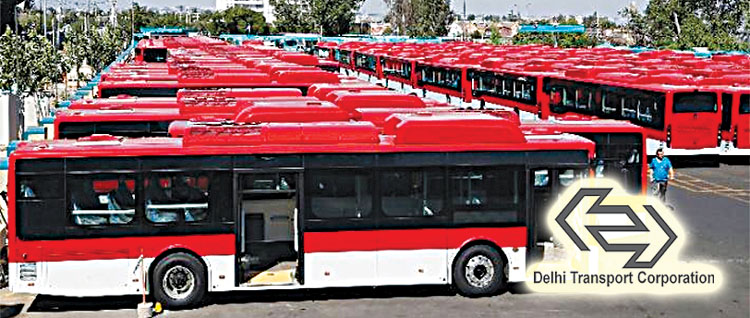New Delhi, Mar 26 (FN Agency) Delhi Cabinet on Friday approved the engagement of 300 Low Floor Fully Electric AC buses by Delhi Transport Corporation, moving a step closer towards clean energy road transport system. In a Cabinet meeting, the council of Ministers of the Delhi Government approved the proposal for engagement of 300 Low Floor Fully Electric Air Conditioned buses by the Delhi Transport Corporation (DTC) under the ”Faster Adoption and Manufacturing of Hybrid and Electric Vehicles in India (FAME) Phase-II” Scheme of the Government of India.
The initial tender called by DTC in October 2019 was not found responsive and, therefore, the process was cancelled. The fresh tender called in June 2020 was also cancelled as the rates were not found competitive. The tender was called the third time in December 2020, which was found to be responsive and competitive. The engagement of electric buses in DTC fleet on the OPEX Model is a major policy shift as regards the operation of buses by DTC. So far DTC has been operating only the buses owned by it. Electric-Powered buses are being inducted into the DTC for the first time. The induction of 300 electric buses by DTC at a time is one of the largest engagement of electric buses by any State Government or State Transport Undertaking (STU).
The lowest bidder is M/s JBM which has quoted Rs 68.58 per km. The second-lowest bidder, M/s Tata Motors, has agreed to match the rate quoted by M/s JBM. Under the tender conditions, M/s JBM will operate 200 buses, while 100 buses will be operated by M/s Tata Motors. Under the scheme, the buses would be able to operate a minimum 140 km in a single charge. The Operator will provide the Driver and DTC will depute its own Conductor in the buses. The Operator will be responsible for maintaining the buses or battery throughout the concession period of 10 years. The replacement of the battery will be the obligation of the Operator, which is generally done after 5 years. The cost of electricity consumption for the operation of these buses will be borne by DTC on actual buses up to an energy efficiency of 1.4 kwh/km.
However, the amount towards excess consumption of electricity for more than 1.4 kwh/km efficiency will be recovered from the Operator on an annual consumption basis. The cost of charging infrastructure, including the cost of charging equipment and transformer, etc, will be borne by the operator. DTC will provide an electric connection up to the depot from the nearest grid. The operator will be free to use a fast or slow charger but will have to operate the buses for at least 200 km per day. Prototype of buses is likely to be received by DTC in June 2021. The first lot of 118 buses will arrive in October 2021, while November will see the addition of 100 buses. 60 buses will arrive in December, while the remaining 20 buses are likely to be received by January 2022. The buses will be parked at the Subhash Place Depot, Mayapuri Depot, Rohini-II Depot, Rajghat-II Depot and Mundela Kalan Depot. Delhi Transport Minister Kailash Gahlot in a statement said, “In fact, electric buses are being introduced in Delhi for the first time and this is one of the largest engagements of electric buses by any state government or State Transport Undertaking. Soon we will have electric buses running on Delhi roads.”

